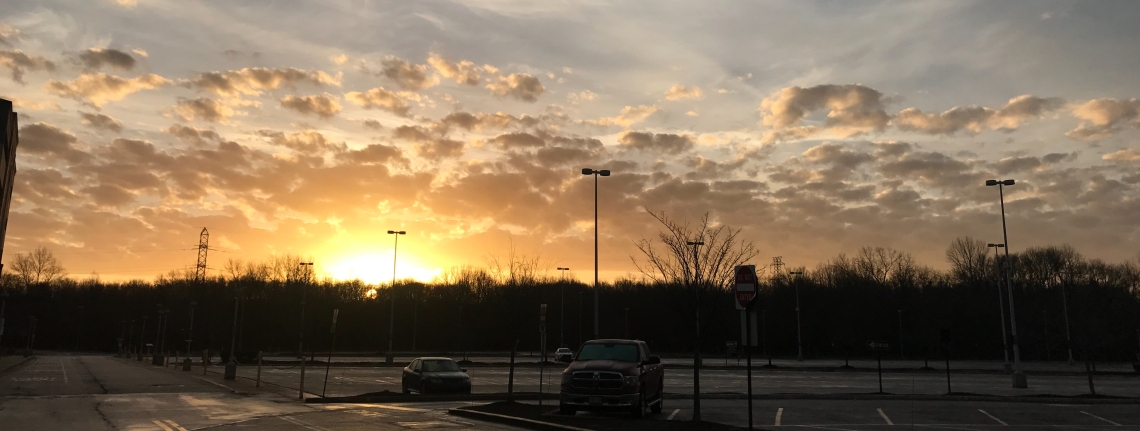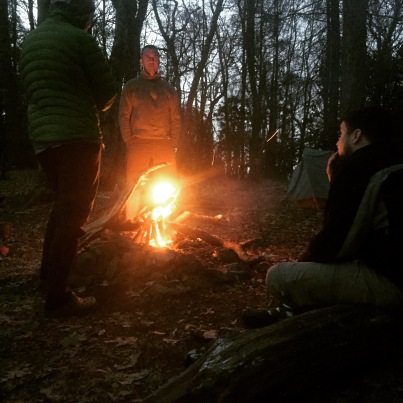
“The Christian of the future will be a mystic or will not exist at all.” – Karl Rahner
I will readily admit that I have not read Karl Rahner as much as I ought, but gauging from the above quote and what else I know of him, I would have loved a conversation with him. This quote, however, summarizes my thoughts, critiques and hopes for Western Christianity. Just what are my thoughts, critiques and hopes? I am glad you asked.
There is a growing discontent that Western Christianity has become stale. Not everywhere, mind you, but in enough places that people have noticed… I know that I have voiced it before, but in my estimation the western approach to faith has become more concerned with propositional truths to the exclusion or deferment of relational realities. What do I mean by this? It is more interested in intellectual assent to dogma or historicity than with how these doctrines and stories in Scripture relate to all the other spheres of life. Is the Christian faith concerned with beliefs about the world or is the Christian faith concerned with how one interacts with the world? (Perhaps a little of both, but more on that later.)
To illustrate my point, ask yourself some of these questions. Oh, and be honest.
- When is the last time you heard a riveting sermon defending art, beauty and free speech?
- When is the last time you had a delightful disagreement that finished with the two of you still being able to go out for beers afterward?
- When is the last time you had someone say that God is glorified by your shoemaking abilities even if you don’t brand a cross on every pair? (That’s from Martin Luther.)
- When is the last time you were encouraged to dive into greater self-awareness, to legitimately get to know yourself better because that is a vital part of the Christian faith?
I think there was a turning point when I began to ask for myself, “Yes or no, does my current approach to the faith legitimately increase the quality of my life and the life of those around me?”
No beating around the bush.
Yes
or
No?
What about for you?
Is the faith just a comfort item for you on your hard days or does it legitimately offer something deep and profound to every corner of your life?
It is fascinating and frustrating to me that people have a negative reaction to the word “mysticism.” To me, it reminds me that at the heart of Christianity there is a mystery that is deeper than the religious services we hold in our churches.
I believe the pastor-theologian Karl Barth was correct when he more or less said that mysticism is the believing inverse of atheism. Atheism looks at religious forms and ceremonies and says they are empty and therefore should be discarded. Christian mysticism on the other hand looks at religious forms and ceremonies and says that they point toward a larger reality, and so, they are symbols or means of communicating the larger reality. They are not to be dismissed or done away with, but recognized as having limits…
For instance, GK Chesterton once remarked that large truths can only be shared on small stages. There are some things in this world that are too grand, too beautiful to be defined or contained, but they can still be pointed at by smaller things. I have a personal theory that pastors, churches and sabbaths each point toward the larger reality that every one, every place and every time are uniquely spiritual. Pastors, churches, and sabbaths then become symbols or anchors that point to a larger reality. This is exactly what comes to my mind when I think about Christian mysticism.
We are now at a unique time in human history when church attendance is dropping in large pockets of the world, but we have the increase of “spiritual but not religious” individuals. This tells me that the world is filling up with mystics. Thus, one of the things that needs to be reclaimed is a robust understanding of Christian mysticism. “Spiritual but not religious” may, in and of itself, be a good a proper reaction to a whole generation that was “religious but not spiritual.” (Which may really be more accurately defined as a generation seeking orthodoxy but not orthopraxy.)
The fallout of western Christianity may be justifiable if the next generation looked at their parents and did not see any transformational spirituality happening in their interpretation of the faith. How many people have been turned off to the faith as a result of watch the moral failure of very religious folk who kept their spirituality at a safe distance? I myself took a year and a half away from the church bubble for that very reason.
The “spiritual but not religious” collective are not to be dismissed and told to just accept the faith of their predecessors, rather, their predecessors can consider their presence as feedback, as input for what has been overlooked.
This is, in part, why I have come to thoroughly enjoy the great mystics of Church history. From Francis of Assisi to Bonaventure to Augustine to Teilhard to Hildegard to Ignatius to George Herbert to John of the Cross, they each have resonated with me in deep and meaningful ways that others have not.
I don’t think that what the church needs to do today is to become more “mystic”. Rather than force a mysticism onto Christianity, I think we need to return to its already-present-yet-overlooked mystic roots… These deep roots that have been forgotten, or held at arms length because spirituality is revealing, uncomfortable, and untamed. Rather than dive into spirituality, many have chosen to dive into theology. But theology is not the end goal, the end goal is to love God and neighbor, to live well, and enjoy this beautiful world in all of its simple complexity and complex simplicity.

How about two images from Scripture to bring us home? The first is from the life of Moses and the second from Jacob.
A little while ago I hosted a discussion about Moses and the Burning Bush. As you might remember, Moses comes onto the scene and sees a bush burning yet not consumed. Despite the fact that Gregory of Nyssa taught me that there are profound parallels to Genesis 3 and humanity hiding in the bushes, I think there is something to be learned here, to be learned from looking more closely at the fire…
The reason I think that the church needs to remember its mystic roots is because I think that the faith has to do with depth of perception. How aware are we to the Holy Fire? Is it not possible that the whole earth is aflame and we are unaware of the ever present God? Is it not the hope of all of us that as we lay down to close our eyes one last time that we reiterate Jacob’s words and say “God was in my life the whole time and I was unaware?” This is what I mean, this is what I hope, this is the faith I believe the church needs to resuscitate… To look at the whole world and live in mystery and awe of the grandeur and beauty of God at all times, in all places, in all people.
After all,
